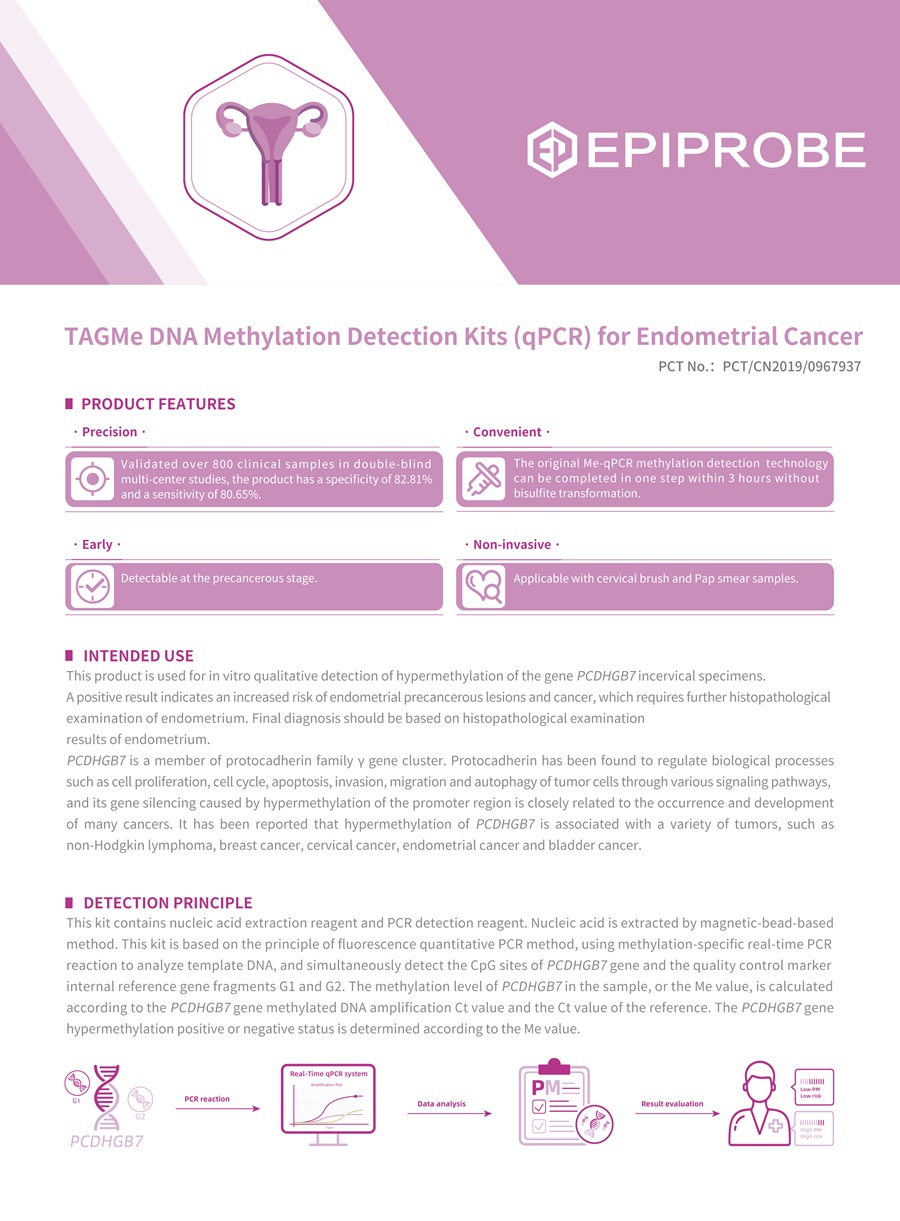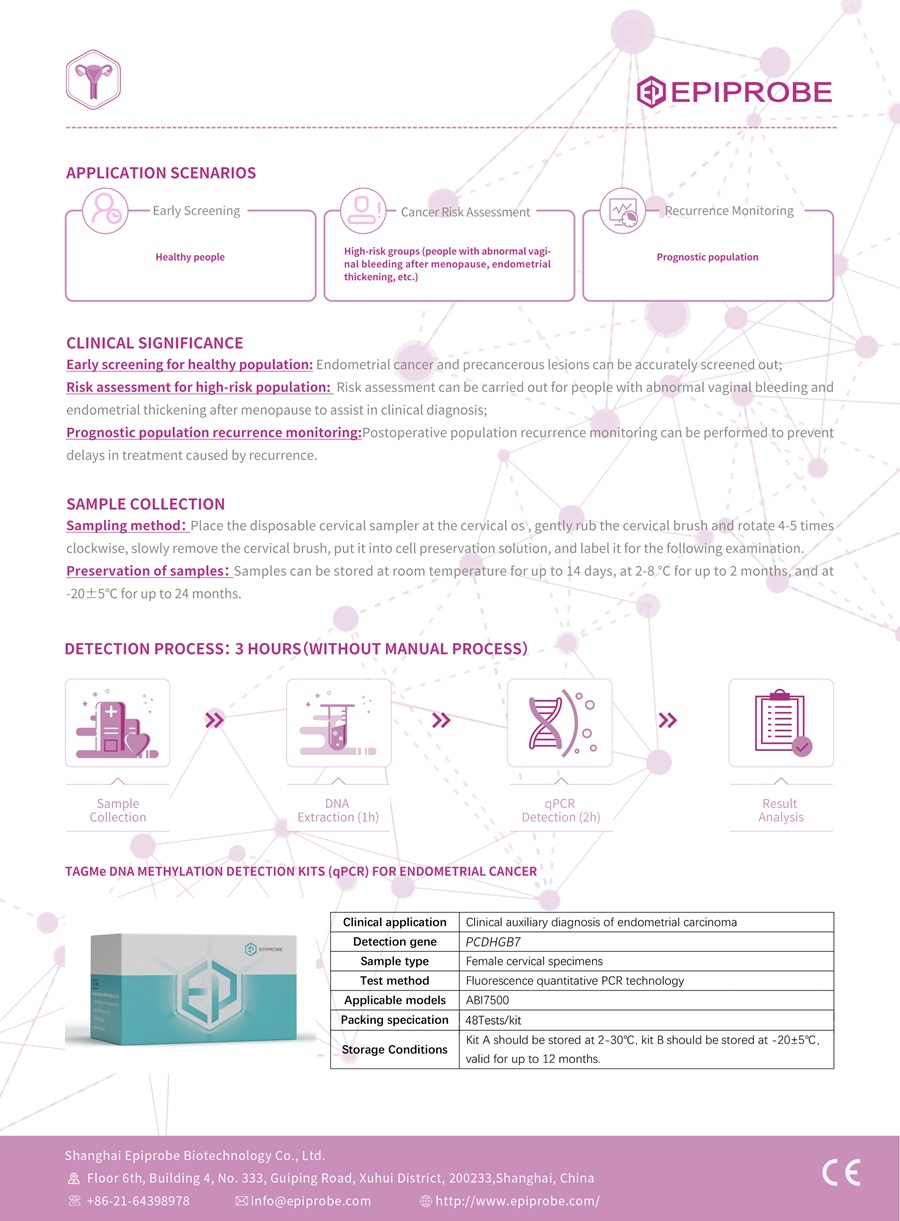Endometrial cancer is a prevalent gynecological malignancy, and its early detection is crucial for successful treatment. Methylation DNA detection kits have emerged as a promising tool for the early diagnosis of endometrial cancer. These kits are designed to detect specific DNA methylation patterns associated with the development of this type of cancer. Understanding the principle and function of methylation DNA detection kits is essential for appreciating their significance in the early detection of endometrial cancer.
The principle of methylation DNA detection kits lies in their ability to identify aberrant DNA methylation patterns that are characteristic of endometrial cancer. DNA methylation is an epigenetic modification that involves the addition of a methyl group to the DNA molecule, typically at cytosine residues within CpG dinucleotides. In cancer, including endometrial cancer, specific genes may undergo hypermethylation, leading to their silencing and contributing to the development and progression of the disease.
Methylation DNA detection kits utilize various techniques to identify these aberrant methylation patterns. One common approach involves bisulfite conversion, which selectively deaminates unmethylated cytosines to uracil, while leaving methylated cytosines unchanged. Subsequent DNA amplification and detection methods, such as methylation-specific PCR (MSP) or quantitative methylation-specific PCR (qMSP), enable the identification of specific methylated DNA sequences associated with endometrial cancer.

The function of methylation DNA detection kits for endometrial cancer is to provide a sensitive and specific means of detecting these aberrant methylation patterns in clinical samples. By targeting specific genes known to be hypermethylated in endometrial cancer, these kits can identify molecular signatures indicative of the disease. This early detection potential is crucial for improving patient outcomes, as early intervention and treatment can significantly impact the prognosis of endometrial cancer.
The development of methylation DNA detection kits specifically tailored for endometrial cancer has revolutionized the field of cancer diagnostics. These kits offer several advantages, including high sensitivity and specificity, rapid turnaround times, and the ability to analyze a wide range of clinical samples, such as tissue biopsies and liquid biopsies. Additionally, the non-invasive nature of liquid biopsy samples, such as blood or uterine lavage, makes methylation DNA detection kits particularly attractive for routine screening and monitoring of individuals at risk for endometrial cancer.
The implementation of methylation DNA detection kits in clinical practice holds great promise for improving the early detection and management of endometrial cancer. By identifying specific DNA methylation patterns associated with the disease, these kits can aid in risk stratification, early diagnosis, and monitoring of treatment response. Furthermore, the integration of methylation DNA detection kits into existing screening programs may enhance the overall effectiveness of endometrial cancer screening and contribute to reducing the burden of this disease.

In conclusion, methylation DNA detection kits for endometrial cancer represent a significant advancement in the field of cancer diagnostics. By leveraging the principle of aberrant DNA methylation in cancer, these kits offer a powerful tool for the early detection and monitoring of endometrial cancer. As research and technology continue to advance, the development of increasingly sensitive and specific methylation DNA detection kits holds great promise for improving patient outcomes and reducing the impact of endometrial cancer on individuals and healthcare systems worldwide.
Post time: Mar-27-2024

